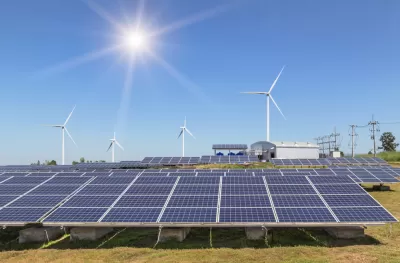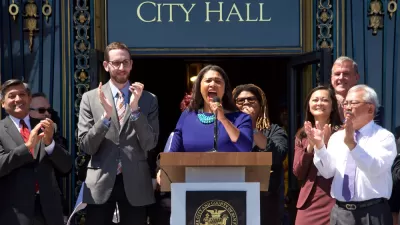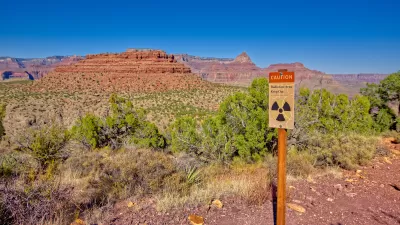Four mayors hammer home the point that moving to 100 percent clean energy on the municipal level is environmentally, economically, and politically desirable.

"Over the past few years," four mayors write, "100 cities and towns across the country — such as those we represent: Columbia, South Carolina; Salt Lake City, Utah; and San Diego and San Francisco, California — have committed to power our cities on 100 percent clean, renewable energy like solar and wind."
The mayors, Columbia's Steve Benjamin, Salt Lake City's Jackie Biskupski, San Francisco's London Breed, and San Diego's Kevin Faulconer, co-chair the Sierra Club's Mayors For 100% Clean Energy campaign.
Emphasizing that roughly one in seven Americans live in places making the transition to 100 percent renewable energy, they cite the position's political advantages, on top of environmental and economic ones. They write, "Recent polls show that public support for 100 percent renewable energy is at an all-time high, and power providers are taking note. According to a survey conducted on behalf of Edison Electric Institute, a utility industry think-tank, over 80 percent of the population believes 100 percent clean energy is the right thing to do."
FULL STORY: One Hundred Cities Are Leading the Way to 100 Percent Clean Energy

Planetizen Federal Action Tracker
A weekly monitor of how Trump’s orders and actions are impacting planners and planning in America.

Maui's Vacation Rental Debate Turns Ugly
Verbal attacks, misinformation campaigns and fistfights plague a high-stakes debate to convert thousands of vacation rentals into long-term housing.

San Francisco Suspends Traffic Calming Amidst Record Deaths
Citing “a challenging fiscal landscape,” the city will cease the program on the heels of 42 traffic deaths, including 24 pedestrians.

Amtrak Rolls Out New Orleans to Alabama “Mardi Gras” Train
The new service will operate morning and evening departures between Mobile and New Orleans.

The Subversive Car-Free Guide to Trump's Great American Road Trip
Car-free ways to access Chicagoland’s best tourist attractions.

San Antonio and Austin are Fusing Into one Massive Megaregion
The region spanning the two central Texas cities is growing fast, posing challenges for local infrastructure and water supplies.
Urban Design for Planners 1: Software Tools
This six-course series explores essential urban design concepts using open source software and equips planners with the tools they need to participate fully in the urban design process.
Planning for Universal Design
Learn the tools for implementing Universal Design in planning regulations.
Heyer Gruel & Associates PA
JM Goldson LLC
Custer County Colorado
City of Camden Redevelopment Agency
City of Astoria
Transportation Research & Education Center (TREC) at Portland State University
Jefferson Parish Government
Camden Redevelopment Agency
City of Claremont





























